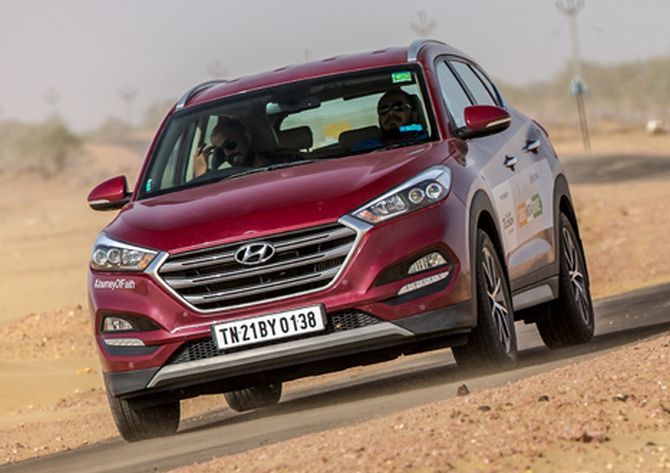Facing capacity constraint, firm is yet to take a call on setting up a new manufacturing unit in India.

Korean carmaker Hyundai, which has lost its position as the country’s largest car exporter to Ford, will rework its growth strategy to expand volumes in the domestic market.
Unlike most other carmakers, who are sitting on a surplus capacity, the second-biggest carmaker, is facing a capacity constraint. It is yet to take a call on setting up a new manufacturing facility in the country.
“We are conscious of the growth of the Indian market. We will continue to rework our production plans with a high focus on the domestic market.
We will tweak the domestic and export strategies so that we do not lose volume or market share in India,” said Rakesh Srivastava, director (sales and marketing) at Hyundai Motor India.
The company, which has a 17 per cent share in the domestic passenger vehicle market, is operating its plants at a 99 per cent capacity and has little headroom to expand production.
It will, therefore, have to sacrifice export growth in favour of the domestic market. With the global markets turning “uncertain” and “volatile”, Srivastava said the firm “will react as the situation unfolds”.
“There are changes in norms across countries,” he said. The company exported 33,158 vehicles in the first quarter of FY18, declining more than 16 per cent to corresponding period of last year.
American carmaker Ford exported 48,971 vehicles in the three months, clocking a growth of 54 per cent, Siam data showed.
Hyundai’s domestic sales grew 0.66 per cent to 124,327 vehicles during the April-June quarter as June volumes took a hit due to the goods and services tax (GST).
For the full year, the company is eyeing a growth of 5-6 per cent in the domestic market.
It has launched HyBuy, a referral programme for buyers who book cars online and refer it to friends and relatives.
Hyundai said the company was well placed to emerge as a key beneficiary of the GST.
“We believe that Hyundai will be one of the largest gainers post the GST. We have products ranging from Rs 3 lakh to Rs 30 lakh.
While we were always strong in cars priced up to Rs 10 lakh, GST will increase our presence in the Rs 10 lakh plus segment, which now brings almost 20 per cent of our volumes through cars such as Creta, Elantra and Tucson.
The price drop of up to Rs 2 lakh makes the price value equation more favourable for these cars,” said Srivastava.
The company, which transports almost 2,000 cars every day from its plants to dealerships and ports, said the GST would bring a significant change in the time and cost taken by logistics.
“I believe that there could be a reduction of ten per cent in logistics cost going forward. The net benefit will go to customers,” said Srivastava.
Freight cost on a car ranges from Rs 10,000-14,000, the company said.
He said the GST has helped dealers to clear inventory to a large extent and released the blocked capital.
“This money is now available for dealers to build inventory of fresh stocks that should lead to a good festive season demand for the company,” he added.
Photograph: Kind courtesy, Hyundai India












 © 2025
© 2025